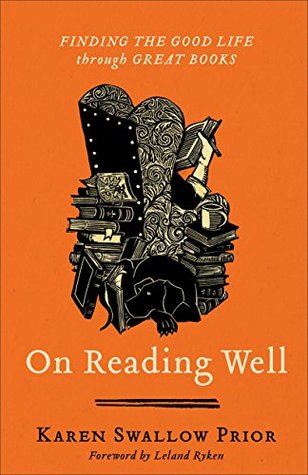More on this book
Community
Kindle Notes & Highlights
Read between
April 12 - April 24, 2020
Aristotle says friendship “is an absolute necessity in life.” No one “would choose to live without friends, even if he had all the other goods” that life offers.
While charity is desire that moves us toward God, cupidity is desire that moves us away from God.
Death is the shadow that has trailed us all our days, and comes ’round to meet us at the front door. No lock can keep him out forever.
Chastity, most simply, is fidelity.
The marital relationship is singular in the way each partner shapes and forms the other. The good habits practiced by one partner contribute to the positive formation of the other.
Marriage “is about children, and household economy, and stability. And marriage is also about God.”
From this intermediate meaning, it is a short skip to our current sense of diligence as “steady, persistent effort.”
Too much care and attention given to social media notifications might be another example of excessive care and attention that constitutes a vice. (Guilty!)
In the Bible, diligence is often presented in contrast to its opposite, sloth.
A diligent approach to reading means one thing for the seminary student, another for the man with heavy work responsibilities and five children at home. For the former, diligence in reading might mean reading two books a week; for the latter, a few pages a night.
If perseverance is successfully staying afloat in the water, diligence is the treading feet that make floating possible.
In other words, allegory requires and assumes the exercise of diligence by readers.
The essence of patience is the willingness to endure suffering.
The patient is someone “suffering” from an ailment—not merely waiting.
As the Bible says in James 5:11, patience is not passivity but perseverance.
N. T. Wright says that patience is required in order to attain the other virtues.33 “Patience is one of the places where faith, hope, and love meet up,” he writes.
Kindness isn’t natural to most of us, which is why it is a virtue that needs to be taught and cultivated.
Envy, in fact, is the vice that, in the classical tradition, opposes kindness.
Kind comes from the same root from which we get the word kin. To be kind, then, is to treat someone like they are family.
A mere acquaintance might be nice enough to say that your new hairstyle is attractive even if it isn’t, but a true friend—someone who is more like family—would be kind to point out that another style is more suited to you.
The virtue of kindness simply cannot be separated from truth.
To be human is to struggle with pride.
The root of pride, according to Aquinas, is lack of submission to God; pride, therefore, is “the beginning of all sin.”
Eugene Peterson explains, “This is the Genesis origin of who we are: dust—dust that the Lord God used to make us a human being. If we cultivate a lively sense of our origin and nurture a sense of continuity with it, who knows, we may also acquire humility.”
Humility is not, therefore, simply a low regard for oneself; rather, it is a proper view of oneself that is low in comparison to God and in recognition of our own fallenness.32 “Humility is thinking less about yourself, not thinking less of yourself.”33
This is the “moral irony” of the virtue of humility: the “ironic biblical principle that humility ultimately results in exaltation.”
To live “humbly before God means suffering and submitting to other sinful human beings,”
Humility is taking our place, no matter how small (or big), and fulfilling that place with a heart overflowing with love. The good life begins and ends with humility.


